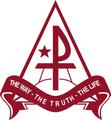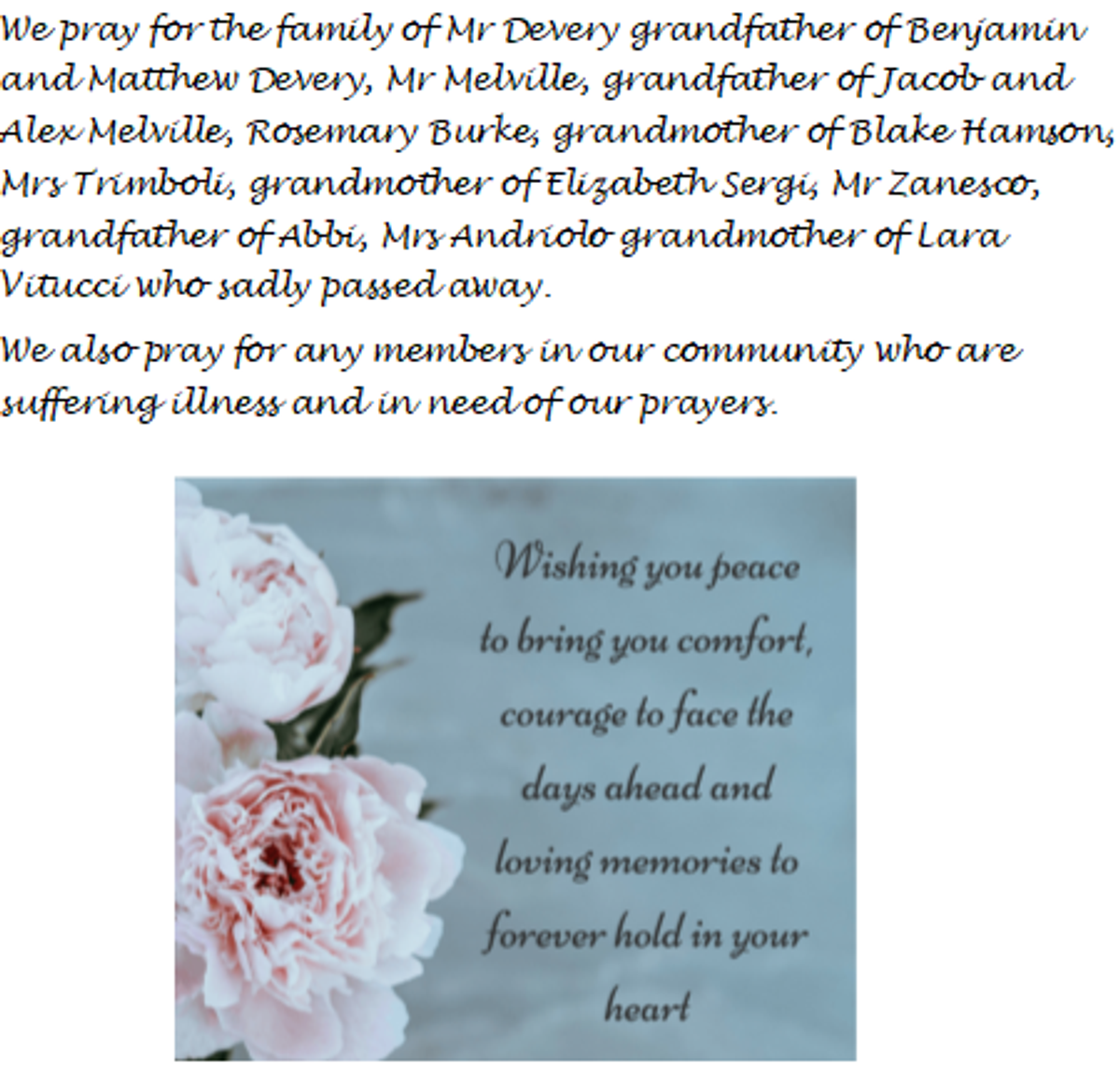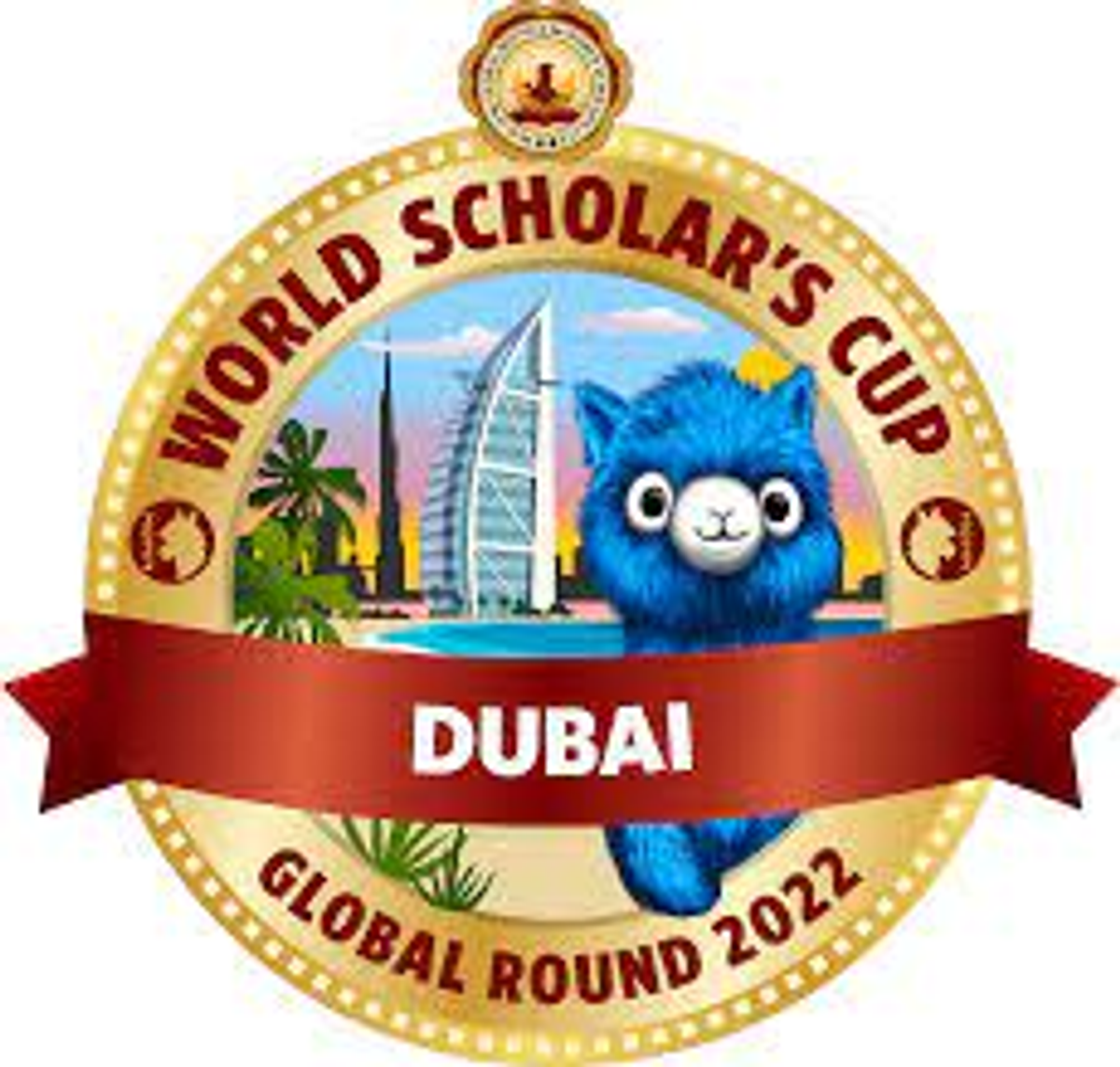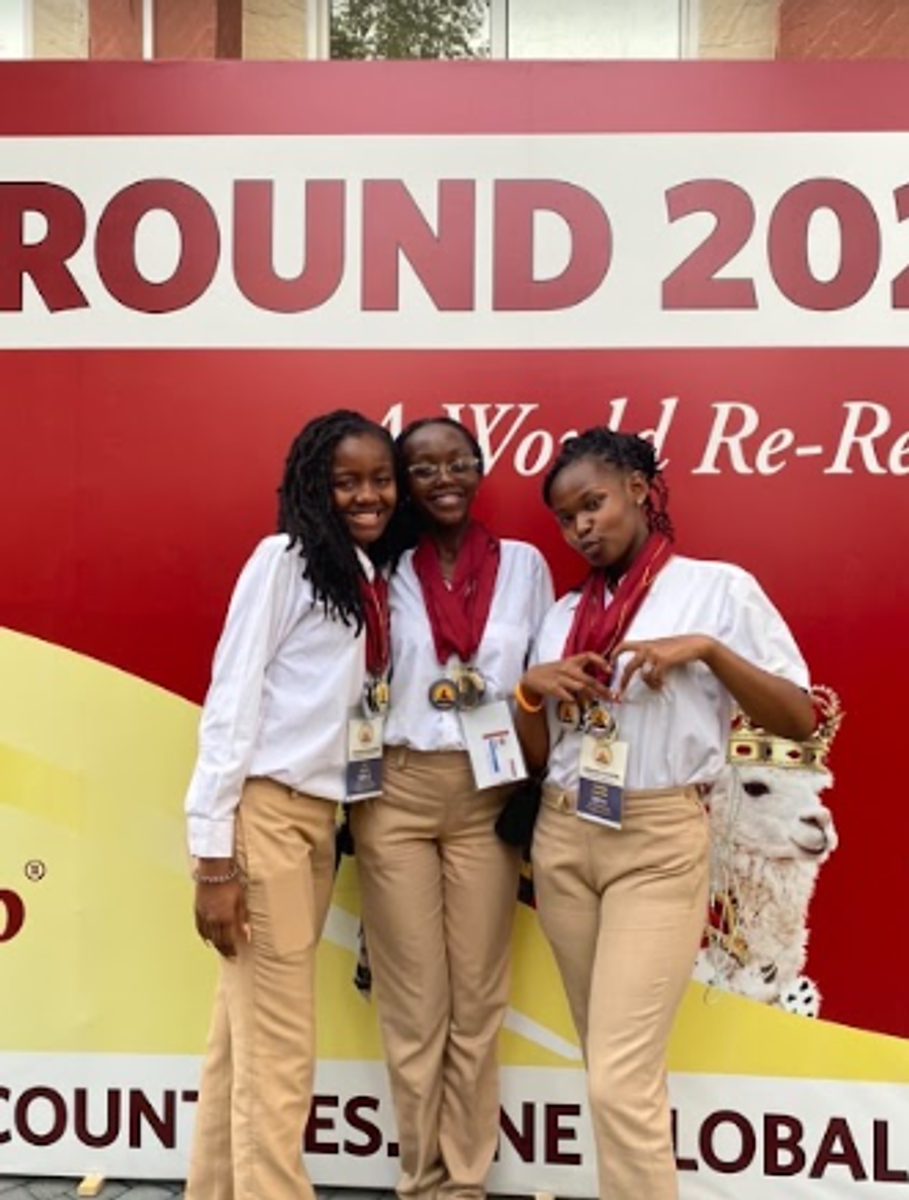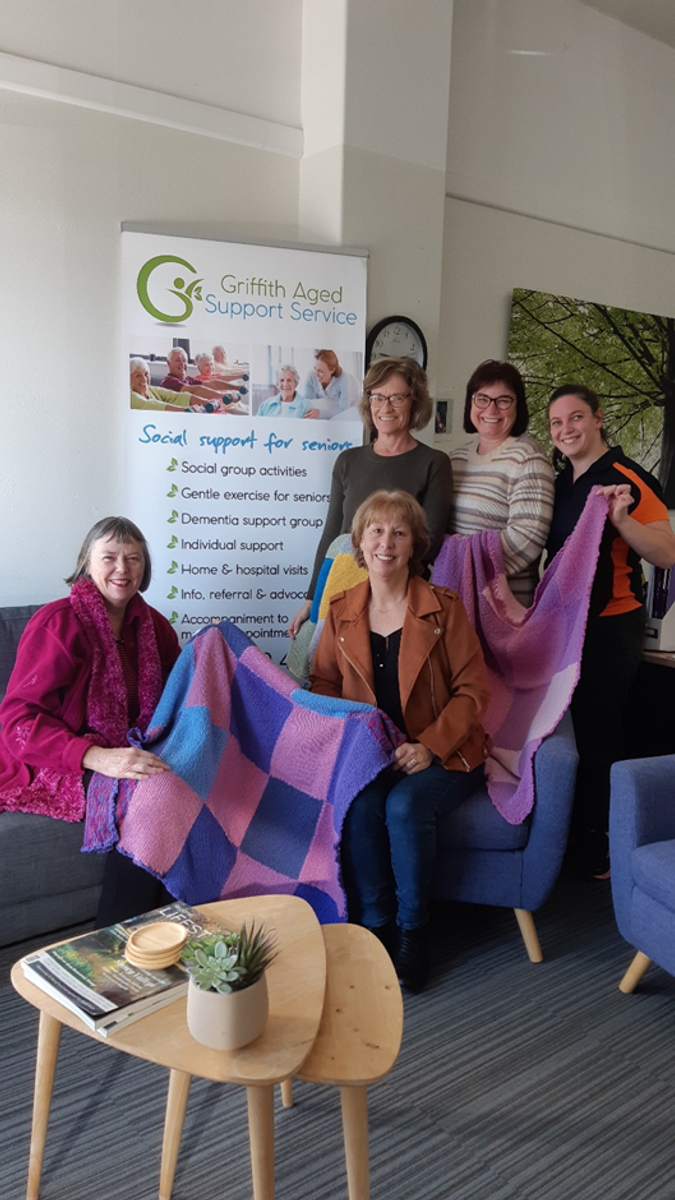College News

We pray for.......
What an achievement by Joy
The World's Scholar Cup is an international team academic program with more than 15,000 students participating from over 65 countries every year. It consists of three rounds; the regional round, the global round and the tournament of championships.
How can unlikely stories be told in unlikely ways?’ was the first and indefinite last question that I explored on my World Scholar’s Cup journey. This World Scholar’s Cup Global round was an` experience that was truly momentous. It was an experience with its beginnings in the training room.
When I first stepped foot into the ‘WSC’ training room, the room was buzzing with the sound of intense typing and passionate discussion, it was great. This energy that the training room encased from day one never deterred. Having a number of topics consisting of varied material being introduced in such a quick manner was overwhelming. However, knowing that your knowledge on those topics was subject to examination, now that made me worried. With the appreciated assistance and guidance of my teachers and friends, my worries and concerns faded.
It was a race against time, and surely time was not making it easy. Even with the lack of time, I was able to adopt a substantial amount of new skills and expand my base of knowledge. Time was spent writing essays, having discussions, debates and quizzes with every other Scholar. It was not a journey I took upon myself as a sole individual but as an individual part of a team. We all were in this together.
With absolute honesty, I expected nothing out of the World Scholar's Cup besides a good experience with any awards or medals considered a bonus. Participating in all four demanding events (the Scholar’s Challenge, Debate, Collaborative Writing and Scholar’s Bowl) was a stressful experience as a whole, however it was an enjoyably stressful experience!
I would like to take this opportunity to express my gratitude for the opportunity given and guidance throughout this journey by the teachers and scholars. This experience would not have been the same if it were not for teachers. If you have never participated in a ‘WSC’, I would encourage anyone with the opportunity to do so. It is an exceptional experience that will have a guaranteed lasting impression. This was an experience that I personally treasured.
Team Events
The Scholar's Challenge
The Scholar's Challenge is a 120-question multiple choice exam given to each individual competitor to complete within 60 minutes. Prizes are awarded to top participants in each subject and to both top-scoring overall teams and individuals.
A feature of the Scholar's Challenge allows participants to select multiple answers per question. Though each question has only one correct answer, choosing multiple answers allows the participant to earn points inversely proportional to the number of answers chosen.
Collaborative Writing
This part is based on arguments, with students picking one of six different prompts. Each participant on a team must pick a different prompt. Participants pick one side of a topic and write for, against, or about it critically, providing evidence to support their claims using any resources available to them, with the exception of social media and communicating with people other than their teammates.
At the beginning of the event, students have 30 minutes to work with their teammates to discuss and research their arguments. Following the collaboration period, students have 45 minutes to write their essay. There is no word minimum or maximum, and students are expected to cite sources. Following the writing period, students then have 15 minutes to collaborate again with their teammates to edit one another's work, but they may not finish a teammate's essay.
Team Debate
All teams have assigned rooms and arguments. In the room, teams will have 15 minutes to confer within the room before the debate begins. Teams may use World Scholar's Cup materials or any outside resources to prepare.
Each debater will stand in front of the room for the length of his/her speech. Speakers may use notes, but should not read their speeches in their entirety. Students may speak for up to four minutes, however there is no penalty for speaking up to four minutes. The judge will signal time left using knocks, with two knocks meaning the speaker must stop speaking. Between speakers, teams will have 60 seconds to prepare before the next speaker is called.
Before the end of the debate, the competing teams are required to give positive and constructive feedback to the opposing team for roughly 90 seconds, before the judge(s) announce a winning team. The winning team will then proceed to a designated room and the non-winning team to a different designated room, where each will face another team with the same number of wins and non-wins.
The Scholar's Bowl
The clicker used for the World Scholar's Cup's Scholar's Bowl.
The Scholar's Bowl is a quiz bowl usually held in a theatre. Team members work together to answer multiple choice questions that are displayed on a large screen.
In order to answer the questions, each team of students is given a clicker that connects to a scoring computer on stage. Students then choose their answer by pressing their choice letter on the clicker. Students are given 15 seconds to submit their answer. The questions get harder each time and worth more points than the previous one. There are sometimes rapid fire questions which have to be answered in 5 seconds, worth even more points.
Community Events
The Scholar's Scavenge
Students are teamed up randomly and given tasks. At least one person in the team has a camera, and the tasks are completed by taking photos and videos. The tasks may relate to the curriculum, teamwork, organiser, or just silly. Each task is worth a certain number of points depending upon the difficulty. At the end of the scavenge, the leader collects the photos and scores them. These scores do not count toward the scores in the competition as a whole, but are only used for this event. Teams with the highest scores can be called for an award in an award ceremony.
The Debate Showcase
Debate Showcase is an additional event, with the round's top 8 junior and senior debaters taking part in this event. At Regional Rounds there is only one Debate Showcase with both juniors and seniors taking part. Regardless, 8 students debate in each Showcase.
The format mirrors the debate's format, but the students instead debate on stage in front of the rest of the participants.[4] When all six speakers have gone, the host of the Showcase invites volunteers from the audience and debaters from the showcase to step forward and share their general thoughts on the topic that was debated.
Additionally, top-scoring round debate participants are the judging panel for the Showcase. When it ends, the panel announces the winners.
The Scholar's Ball
The Scholar's Ball encourages mingling, dancing, and the chance to "look sharp". Students are required to come in formal wear. Some students refer to it as a "pseudo-prom" or "nerd-prom". It was introduced to allow students to mingle with students from different countries.
The Scholar's Show
An event where scholars showcase their talents.Student performances range from vocal and instrumental performances to beat boxing, dancing, drinking hot sauce and magic tricks. The Scholar's Show is held at all two-day rounds, and at each Global Round and the Tournament of Champions.
Flag March
The Flag March happens at the end of every Global Round and ToC before the Awards Ceremony. In the Flag March, there is one representative (flag bearer) from every country participating. The flag bearers carry the flag of their country and march to the stage. I was honoured to bear the flag of Australia.
Joy Mbithe
Year 10 Student
MCC Kindness Project
Over the past few months, two staffmembers from Marian Catholic College have been doing their Service to Community and fulfilling their MCC Kindness Project. Belinda McKellar has been knitting many woollen squares, and with the help from Mrs Jenny Sartor, who has stitched the squares together, they have created 10 blankets. They contacted the Griffith Aged
Support Services, whose head quarters are in the Yambil Hub.
Meals on Wheels and Griffith’s Helping Hands are located at the same centre. The managers, Yvette Pastro and Christine Badoco, were delighted to receive the blankets. These blankets have been donated to those in need in the Griffith Community, in particular the elderly who live at home alone. With soaring living costs and increasing electricity charges, the blankets have proved to be a welcomed and much needed gift, during the cold winter months.
Jenny Sartor
Library
